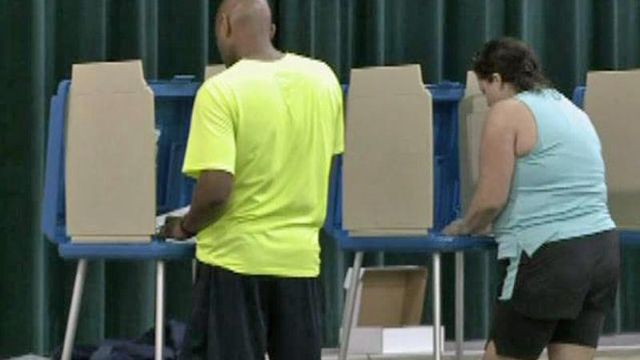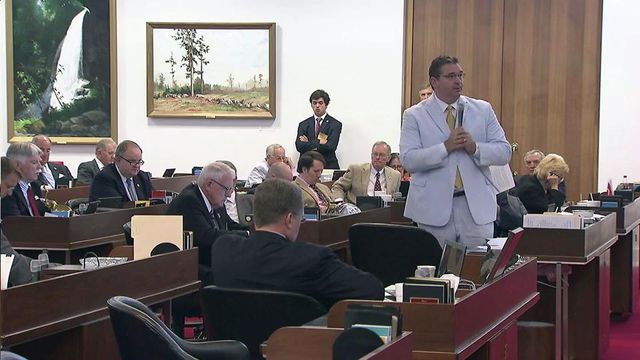Lawmakers agree to allow affidavit at polls in lieu of photo ID
Voters who have been unable to obtain photo identification would be able to sign an affidavit under a provision added at the last minute to a compromise elections bill.
Posted — UpdatedThe measure now heads to Gov. Pat McCrory for his signature or veto.
The agreement to allow for a "reasonable impediment declaration" in lieu of photo ID creates a small but significant exception to the 2013 voter ID law that requires virtually all voters have photo identification starting next year. That law allowed poor voters to get a free identity card from the state Division of Motor Vehicles, but voting rights advocates say that hurdles in obtaining the cards – obtaining long-lost birth records, travel time and time away from work – effectively excluded some voters from the polls.
"This is a joke of a process," said Sen. Josh Stein, D-Wake. "We had no notice this provision was going to be voted on today."
Lawmakers typically are not supposed to include material not part of earlier drafts of the bill in a final conference report.
"This could have been done two years ago," said Rep. Mickey Michaux, D-Durham.
While they objected to the process, Democrats largely supported the measure, which passed the Senate 44-2 and the House 104-4.
"One of the reasons that we put a two-year delay in the photo ID provision is so that we could get some feedback," Senate President Pro Tem Phil Berger said Thursday. "What that provision represents is some of the feedback to try to make sure that everyone who is eligible to vote has an opportunity to not only cast their vote but have their vote counted."
Rep. David Lewis, R-Harnett, who chairs the House Elections Committee, said the idea of an affidavit came up during the public comment sessions on the State Board of Elections' rules to enforce the photo ID requirement. He called it "a fail-safe," but said state officials still stress the need for a photo ID in future elections.
"The gold standard that we've tried to apply in this election conversation is that we want every voter to take part," Lewis said. "If we're going to err, we want to err on the side of the voter."
Photo ID is one of the issues involved in state and federal lawsuits against the 2013 bill that are scheduled to go to trial this summer. Those suits claim the earlier voting law lays down unconstitutional impediments to poor voters.
Under the new bill, voters would be able to swear that they could not obtain photo ID because of eight broad reasons, including "lack of transportation," "work schedule" and "family responsibilities." Such a voter would have to present alternative forms of ID, such as a utility bill or the last four digits of their Social Security number and birth date.
"We were able to get some small measure of relief for voters in North Carolina that will be implemented immediately," House Minority Leader Larry Hall, D-Durham, said after the vote. "We raised significant objections to the timing of the vote and the lack opportunity for public input but we did not risk having another election without some relief for voters under the current oppressive Voter ID law. The question still remains whether resources will be dedicated to train members of the Board of Election and inform the public of these new options."
Related Topics
• Credits
Copyright 2024 by Capitol Broadcasting Company. All rights reserved. This material may not be published, broadcast, rewritten or redistributed.






